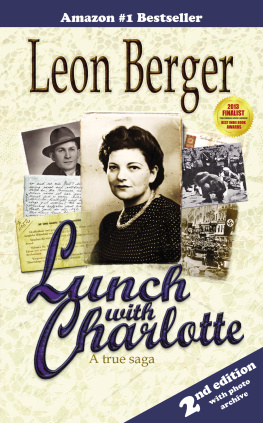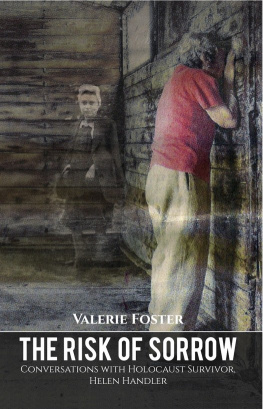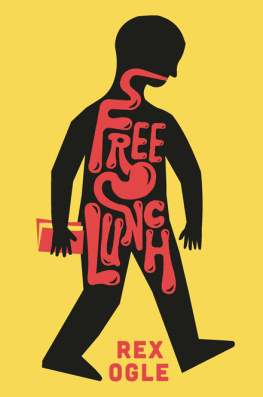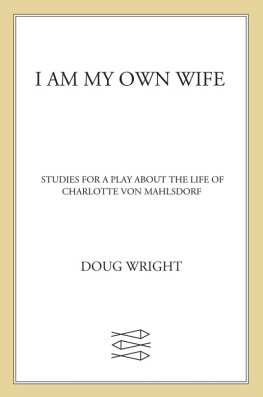Lunch with Charlotte
By Leon Berger
Charlotte Urban
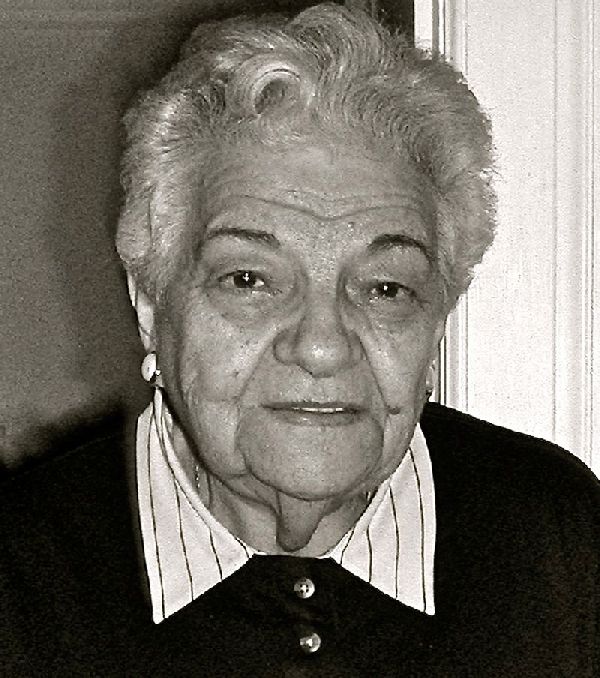
ne Liselotte Goldberger
1919 2010
Montreal, 2008
HOWS THE COFFEE?
Its good, thanks.
Is it strong enough? I dont know, what do you think?
No, its excellent.
You sure? I thought maybe it wasnt strong enough.
This was how it was whenever I went to visit my good friend Charlotte. Often, shed go out of her way to purchase some special item like Viennese-blend coffee, then fret that she hadnt prepared it to my taste. At ninety-one, she was still stubbornly independent, yet she was always searching for praise and this was just one of her many contradictions.
Friday lunch was our usual time together, at least when I wasnt traveling. Although I lived just twenty minutes from Charlotte, my consulting business occasionally took me away from Montreal, either to nearby New York or distant Beijing, but whenever I was in town, Id call to say I was on my way.
Each time Id arrive, shed already have covered half the dining room table with the kind of items I only seemed to consume with her. They were a reflection of her more traditional fare from the old worldhard-boiled eggs, pickled cucumbers, herring in brine, black bread and cream cheese.
Wed supplement this with ethnic staples that were more North American in origin, like the poppy-seed bagels and Pacific lox that Id pick up en route, but these were for my own benefit. She wasnt so keen on them herself. Sometimes, to add variety, she would struggle out to buy chicken livers and a pound of onions, then spend an afternoon chopping it all by hand, the way it used to be done.
As if that wasnt enough, shed follow up by laboring through the evening to bake a deep-dish apple cake for dessert. Such preparations would inevitably exhaust her and Id often protest at the inordinate amount of work but she insisted on making the effort because, as she often said, I was the son she never had and it was her duty to make a fuss.
Yet with Charlotte, the food was always secondary to the talk: eclectic waves of chatter about everything and nothing, from geopolitics to trivia, from the profound to the just plain silly.
In between, shed invariably sprinkle anecdotes of her extraordinary life experience, told with either twinkling humor or bitter sadness in her lilting Austrian syntax. Such episodes were never in chronological sequence but scattered through our myriad conversations over a period of twenty-five years.
She recounted events as she remembered them and shed return time and again to the same incident because of elements shed forgotten or misplaced. Often, shed be totally entwined in every detail, even reproducing chapter and verse of a conversation, but then without any warning, shed come to a sudden halt in her monologue due to some totally arbitrary reason.
It might have been an inquiry about the food or the coffee but it could equally have been a telephone call she had to make, or an invoice she hadnt paid which couldnt be delayed a minute longer. It was difficult to absorb it all in such a haphazard fashion and although I developed a certain expertise at decrypting these sessions, I sometimes became mystified as to who or what we were talking about at any given moment.
To assist my comprehension, she would often illustrate her recollections by hauling out her cherished photographs, which ranged from the sepia tones of her youth to the fading grays of her middle years. In the early snapshots, she appeared robust and willing, a source of girlish laughter and vibrant enthusiasm, but these impressions were far removed from the woman who sat facing me.
By the start of her tenth decade, shed become philosophical mentally capable but physically handicapped. As she said, The engines still good but the bodyworks falling apart. Once an imposing figure, Charlotte had become shrunken by osteoporosis and a surgical operation for her crumbling hip had left her with one leg a full inch shorter than the other.
She was mobile only by means of a specially built shoe and a steel walker, yet despite the effort it took just to get out of bed each morning, she coped majestically. She always presented herself to callers showered, dressed, and groomed, a mark of self-respect and old-world propriety.
In these later years, she came to epitomize the quintessential ethnic mother figure the dignified survivor with the silver hair and the big heart. Everybody who met her loved her. She had a charismatic personality and a generous spirit which seemed to overflow to the world around her. Yet there was another, more tragic side to Charlotte that nobody knew a paradox.
Deep within, she suffered from a profoundly wounded soul and it was only when she was with me in private that she revealed her despair. Sometimes, during our Friday lunch, it would all just pour out of her: the grief, the doubt and the guilt, along with the relentless flow of tears.
Finally, toward the end of her long life, she took me into her confidence and entrusted me with her guarded secret, the shattering trauma shed suffered, which affected every aspect of her existence and gave rise to the emotional volatility that only I ever witnessed.
Her friends, her neighbors, even her family, all came and went without ever discovering this innermost truth but I came to realize that this was the essence of who she was. This was the real Charlotte and it was at the very heart of her extraordinary story.
1 | Vienna, 1915
ACCORDING TO CHARLOTTE , ever a believer in the power of destiny, the origins of her life-changing trauma could be traced back to a precise moment four years before she was born.
It happened in the early spring of 1915, nearly a year after the start of the Great War, when a stocky, prematurely balding serviceman arrived on leave in the Austro-Hungarian Empires grandiose capital of Vienna.
His name was Jakob Georg Goldberger and it was on that afternoon that he first glimpsed and fell instantly in love with a high school girl, Franzi Gutmann, thirteen years his junior. Was it sordid? Just another tiresome example of male foolishness? Or was it more romantic, a lonely soldier searching for innocence in a misery-soaked world?
Raised in the medieval city of Krakow in Galicia, Jakob had been drafted at the outbreak of hostilities, along with countless others, by the Imperial Army of the Royal House of Habsburg. However, he wasnt sent to the front, at least not directly. Thanks to an intuitive skill in languages he was fluent in Polish, German and Russian, competent in Czech, Hungarian and Italian he was trained in administrative duties and eventually transferred to a regional headquarters unit on the outskirts of Pressburg in Slovakia, close to the Austrian border.
So here he was, seizing the rare opportunity of a four-day pass to come see his sister, Berthe, whod married a Viennese and was now a war widow, her husband having fallen on the Serbian front during that first summer of the conflict. Jakob hadnt seen her since she received the news and felt he owed her a visit.
It hadnt been an easy nights journey. Hed been obliged to spend close to seven hours on a slow, crowded bus that smelled of human sweat and chicken excrement. With a grinding transmission and several noisy infants to keep him awake, Jakob was both ravenous and fatigued by the time the bus dropped him near the Stubentor, his eyes bleary and his limbs stiff. A bright sun was just beginning to creep over the ornate rooftops of the Altstadt but he was in no condition to appreciate it.

